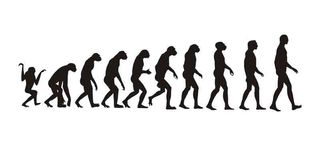Evolution Gets Support in Texas

Updated 9:25 p.m. ET
A decision Thursday by the Texas State Board of Education is a big defeat for proponents of creationism and others who would like to see evolution presented in school as a weak theory that has viable competing alternatives.
The vote was a tie, 7-7, to restore a rule requiring the "strengths and weaknesses" of evolution be taught in high school science class. The tie means the measure was defeated, so evolution can continue to be taught as the very strong scientific theory that it is.
While scientific theories should be open to discussion and challenged by evidence, scientists agree that evolution is about as solid a theory as there is. The idea that all creatures have evolved, and that humans are descended from other primates, is supported by evidence from various fields. Importantly, no evidence exists to even mildly support any other theory to explain the diversity of life, the relationships between some species that have diverged, lineages seen in the fossil record, and even such current and obvious evolution as occurs when microbes evolve to resist drugs designed to kill them.
The wording in the Texas case might seem minor to some. But to supporters of science, it was seen as a wedge that could eventually open to allow teaching of creationism — the idea that God made us and everything all in six days about 6,000 years ago — as an alternative to evolution.
According to The Dallas Morning News, Rep. Barbara Cargill, a Republican who supported the weaknesses requirement, said there have been "significant challenges" to the theory of evolution. Cargill cited a news article about a European scientist who disputed Darwin's "tree of life." Another board member who supported the "strengths and weaknesses" clause said it was a free speech issue.
On the other side: "Every single thing they are representing as a weakness is a misrepresentation of science," said University of Texas biology professor David Hillis in a New York Times article that detailed the proposed change prior to the vote. "These are people with religious and political agendas."
Sign up for the Live Science daily newsletter now
Get the world’s most fascinating discoveries delivered straight to your inbox.
Challenges to evolution have occurred several times in recent years, most notably in the Dover trial, in which U.S. District Judge John E. Jones barred a Pennsylvania school district from teaching "intelligent design" in biology class, saying the concept is creationism in disguise.
Similar arguments are expected to crop up in the Islamic world next, one scientist said recently, pointing to better education and growing internet access as reasons.
Back in Texas, evolution has another unlikely supporter in former president George W. Bush, who in the waning days of his administration said he doesn't think that his belief that God created the world is "incompatible with the scientific proof that there is evolution."
Robert Roy Britt is the Editorial Director of Imaginova. In this column, The Water Cooler, he takes a daily look at what people are talking about in the world of science and beyond.
Robert is an independent health and science journalist and writer based in Phoenix, Arizona. He is a former editor-in-chief of Live Science with over 20 years of experience as a reporter and editor. He has worked on websites such as Space.com and Tom's Guide, and is a contributor on Medium, covering how we age and how to optimize the mind and body through time. He has a journalism degree from Humboldt State University in California.

